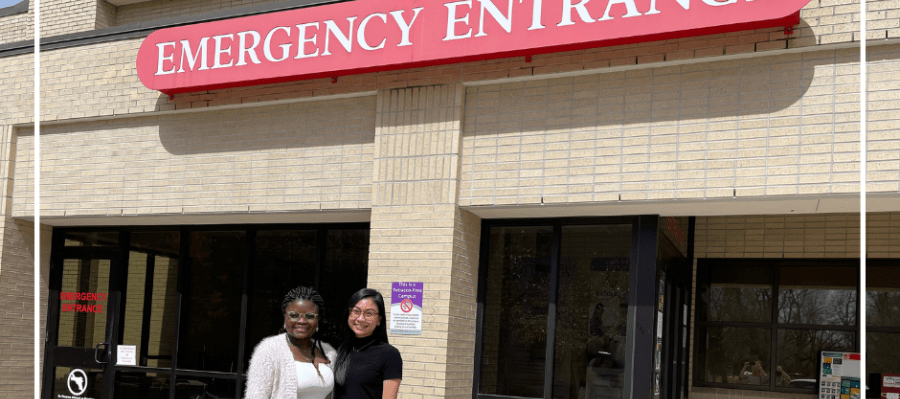Nursing Job Interview: Weaknesses and Strengths
By Conexus MedStaff - Posted Dec 1, 2021

As a nurse who serves patients and families, you are probably quite humble at heart. So how can you best prepare for the hard questions in an interview, including questions about your strengths and weaknesses as a nurse?
“What would you say your weaknesses are?”
It’s a tough question to answer, isn’t it? No one wants to admit they are weak, and certainly not in a nursing job interview. The default feeling in this situation is vulnerability whenever this question hits you, and the questions surely fly through your head if you’re not prepared.
- How candid can you truly afford to be?
- What topics should you avoid?
- How do you take something like this and come away from it looking good?
- How can I stop the nervous fidgeting?
Perhaps they do see you fidgeting. But that doesn’t necessarily mean you’re at risk.
If you’re a recent nursing graduate entering the workforce and confronting the prospect of job interviews for the first time, take the following 4 points into consideration in regards to questions about your weakness.
Be vulnerable.
To start off, let’s re-arrange the weakness question altogether – not as a weakness, but as a vulnerability issue. If you’ve read anything we’ve written about the nursing job interview process, you’ll be familiar with the power of positivity: smiling through the pressure, emoting a pleasant vibe and being your authentic self.
Positivity is a great place to confront the question. Start with this gem from the author and Ted Talk public speaker Dr. Brene’ Brown.
“Vulnerability isn’t weakness. It’s the most accurate measure of courage.”
It takes courage to address personal shortcomings, and leaders are being called on to display more empathyin the face of managing co-workers who face issues head-on. As Dr. Brown enthusiast and author Tony Fakhry adds, “Your greatest triumph will arise when you lean into your vulnerabilities with openness and compassion.”
So embrace your weakness. And to buttress the courage to do so, here are some helpful tidbits both recent graduates and established nurses can employ when an interviewer asks, “What would you say your weaknesses are?”
Take control with a template.
Take an approach that you’ve already identified the area where you have opportunity to grow. There’s a template for this, in fact.
When you have your weakness identified, address it immediately in that fashion: “I’ve identified that one of my weaknesses is that I <INSERT WEAKNESS HERE>.” Then give an example of it in action, provided you have one. If you don’t, immediately move on to the steps you’re taking to address the weakness and to grow or improve.
The energy you create with this affirmative lead off in your response turns the matter around completely, and lets the interviewer know “I’m taking care of this and I am open to growth.” But be prepared to follow through: if you’re fortunate enough to be hired, remember that the interviewer or line manager will be watching, making sure you live up to your vow when the situation presents itself. You become a person of your word that way.
Beware of the “Hey, I’m great!” trap, diving further into your perfectionism.
Two particular responses to the weakness question are likely to draw an eye roll from the people on the other side of the table.
- “I’m such a perfectionist,” and;
- “If anything, I’m too committed/too much of a workaholic.”
These responses have been played out, and they’re often perceived as weak responses that don’t appear to really address an actual weakness. Diligence and dedication? Sign me up! In reality, you need to dive deeper into how these weaknesses, you know…weaken you and the healthcare team you are interviewing with which you would like to be part.
Are you often easily convinced that only you should be tending to the patient?
Has constructive feedback eaten away at you and impacted your performance?
If examples exist, talk about them as well in your response, then address how you’ve taken steps to learn from them and improve. If you’re just entering the nursing workforce, find related areas in your coursework that you’ve picked up on as a challenge to embrace.
The cliche factor.
One more thing about “perfectionism”/”workaholic” response as an answer to the weakness question. Fair or unfair, these responses may come across as cliches that don’t sound genuine. A part of any nurse’s skill set is perceptiveness and the ability to perceive oneself should come out in addressing the weakness question. Above all else, be true to who you are, and take the time to investigate who you are in the workplace and how you’re trying to improve and grow. That is what the interviewer is looking for in your answers.
Address weaknesses at other points of the conversation.
You may find a chance in the course of the interview to address weaknesses as they come up during the conversation. For example, the interviewer may wonder about some gaps in your background, and how they match up with the job description. No problem: talk about it then and there. If you follow the principles of turning it into a positive and a sign of your growth and maturity as a nurse, the interviewer will likely be satisfied on the weakness matter before they even come to that part of the conversation, and choose to abandon it. After all, no one is perfect; authenticity and a growth mindset are often greatly valued by the right employers.
Conexus MedStaff works closely with the very best international nurses, U.S. nurse graduates on F1 visas or OPT and medical technologists. We are a top employer because of our dedication to helping nurses grow. To start your nursing career in the U.S. and be considered for a Conexus MedStaff career, apply here.



